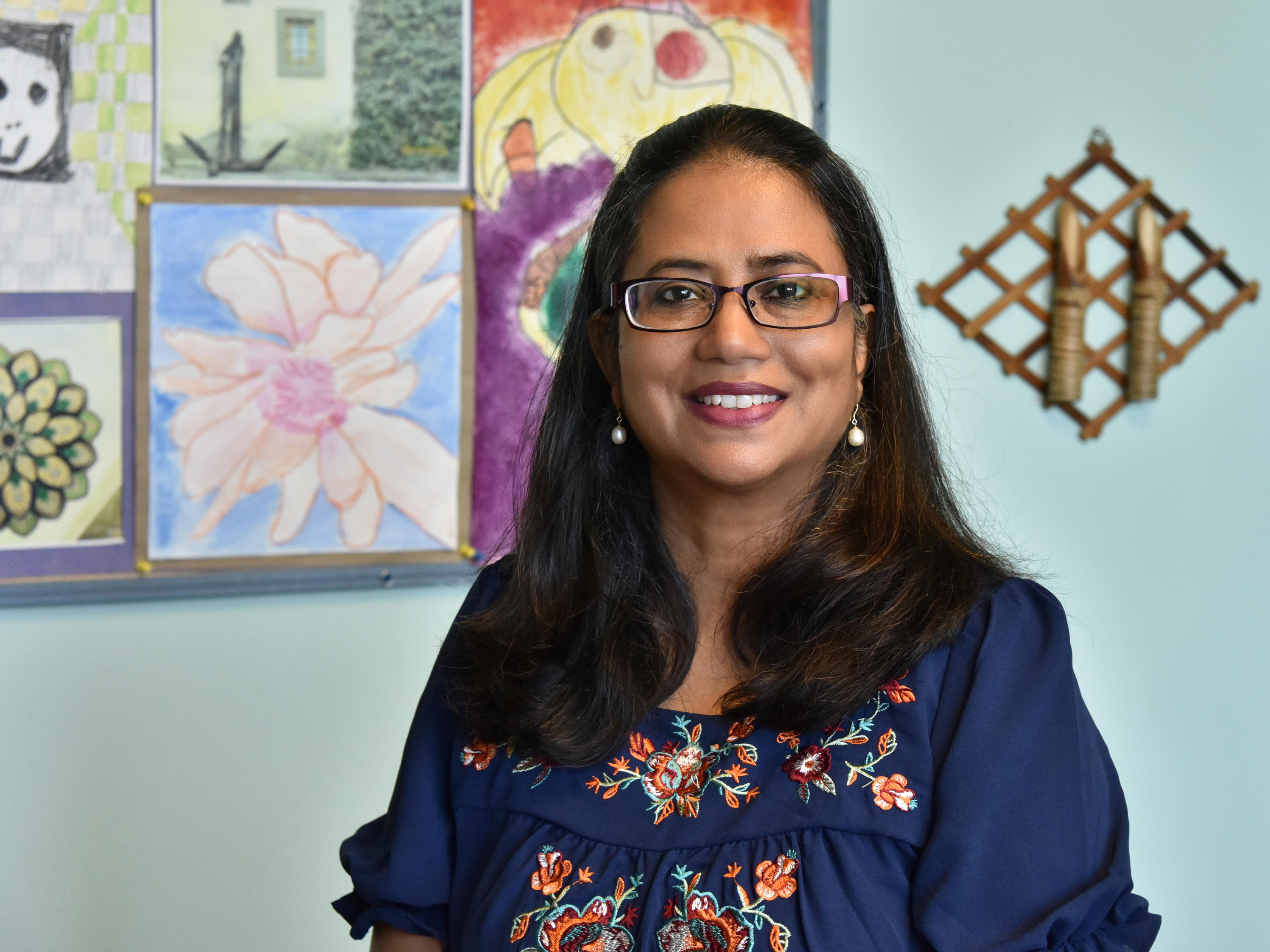Mamta Saxena, an associate professor of human development at SUNY Oswego, earned the Best Overall Presenter award for her virtual presentation of “Juggling Chaos: Gender Issues in Navigating Demands, Family Routines and Stress During the Pandemic” at the 9th World Conference on Women's Studies.
The conference took place both in-person and virtually in Thailand on May 11 and 12.
Saxena’s research explored gender differences in regards to economic demands, family routines, coping and stress throughout 2020 and 2021, using a web-based survey of 814 individuals.
“According to social science researchers, COVID-19 and its variants created a global collective crisis that affected everyone regardless of their diverse backgrounds,” Saxena explained. “We do not often experience such unprecedented shifts that impact and question the sustenance of micro to macro systems worldwide. Thus, the pandemic provided a distinct opportunity to get insights into the experiences of family members and traditional structural inequities entrenched in family life.”
The project began as a collaboration between Saxena and two colleagues on the human development faculty, Dorothy Shedlock and Randall Stetson. Saxena collected data with the help of students in her research methods course, which led to a 2020 publication in Frontiers in Communication titled “Gender and disruptions in family routines and stress amid COVID-19,” co-authored by Saxena, Shedlock and another human development colleague, Zachary Gold.
Saxena’s award-winning presentation featured “a comparative analysis of trends and patterns in 2020 and 2021, aiming to determine the most significant predictor of stress,” she said. “The findings suggested that families have not rebounded despite being vaccinated and relaxed restrictions. Disturbingly, individuals continued to report high levels of clinical stress in 2020, which escalated in 2021.”
Closer examination found “that the perceptions of stress were prominent among low-income/unemployed females as they had the daunting task of managing daily essentials,” Saxena noted.
One notable finding among those sampled involved the disparities between the daily routines for males and females, related to a strengthening of traditional gendered practices.
“Males carried on routines that catered to their personal needs more than others, such as playing video games for relaxation and exercising,” Saxena said. “Conversely, females had routines that helped others more than them, such as cooking, educational activities with children, and check-ins with family and friends. Therefore, it is no surprise that lower-income females reported heightened stress as they tirelessly juggled the chaos without respite.”
‘Exceptional’ contributions
Saxena said she was pleased to earn the award, as well as grateful that the conference, which involved considerable SUNY Oswego collaboration, was a success.
“Getting recognized on an international platform motivates research endeavors and strengthens professional ties with other international researchers who share the same focus,” Saxena said.
“During her presentation, she impressed the audience with their insightful research and dynamic presentations. Her contributions to the field of women's studies were exceptional, sparking thought-provoking discussions among attendees from around the world,” Keerthi Chandana, conference secretariat for WCWS 2023 from the International Institute of Knowledge Management, wrote in the award notification.
One direct outcome was an opportunity to collaborate with Beth Russell, a human development and family sciences faculty member with the University of Connecticut, and her graduate students for additional data collection.
“We have expanded the project with additional variables such as sexual orientation, affect, social support and life satisfaction for data collection in 2023,” Saxena said. “This collaboration will be a new chapter in my project, and I am confident that the partnership will provide a comprehensive understanding of the complex factors that influence the family routines of individuals and further advance the field of women's studies.”




